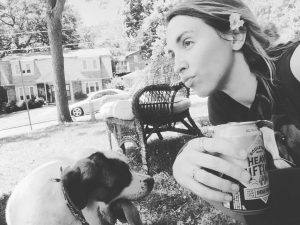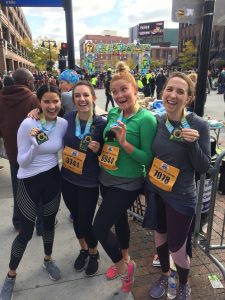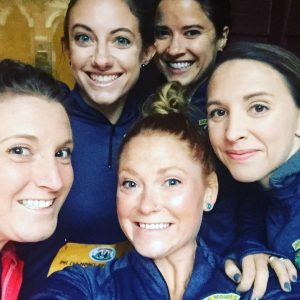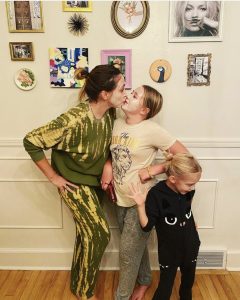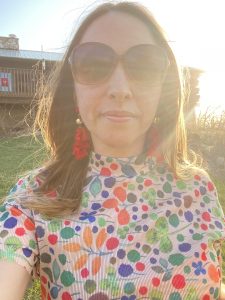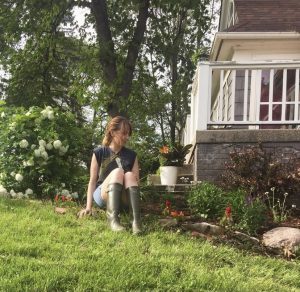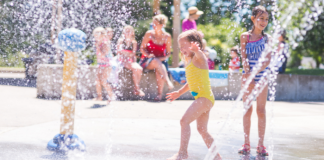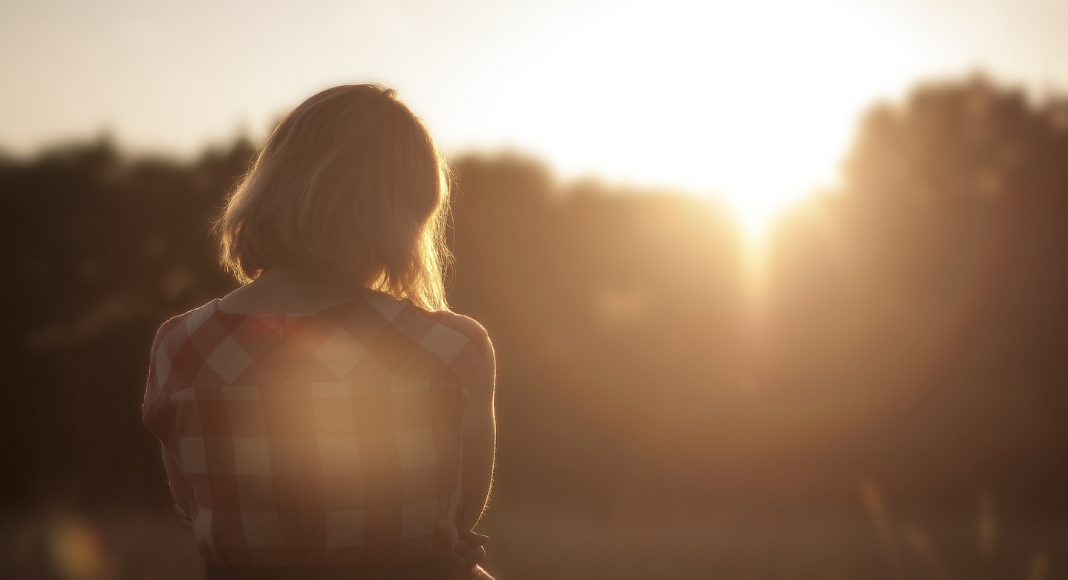 It was the Fourth of July 2018. My family and I spent the holiday evening at my cousin’s house. We grilled brats and portobellos, watched our kids run through the yard, and engaged in lively conversation.
It was the Fourth of July 2018. My family and I spent the holiday evening at my cousin’s house. We grilled brats and portobellos, watched our kids run through the yard, and engaged in lively conversation.
My cousin’s husband Andy is a jack-of-all-trades. One of the many things he can do well is brew beer. He even grows his own hops! On that holiday night, I gulped Andy’s beer like a runner gulps water.
After months of debating whether or not I had a drinking problem, within weeks of losing my step-dad to suicide, I sat on my cousin’s porch and drank the dark liquid as a cure-all.
Suddenly, I blacked out right on my cousin’s living room floor. I woke to my kids asking “Daddy, is Mommy ok?” I remember bits and pieces of the two-minute ride home, then throwing up on our driveway.
Unfortunately, this behavior wasn’t abnormal to me. I had never blacked out in front of my kids before, yet I had plenty of black-out moments to count.
The Problem
I loved alcohol since the first time I felt its calming effect.
At twenty years old I did a shot of jagger then felt a buzz flow to every part of my body. I suddenly felt free from judgment and insecurity. Alcohol was magic! The possibility of feeling free like that all of the time was exhilarating! After the jagger, I drank liquor every chance I got.
Alcohol made me feel in control, and in control wasn’t something I usually felt.
The first time I began to contemplate whether or not I had a drinking problem was after I blacked out at a party. I was thirteen years into my drinking career, married with kids, and also blacked out on my friend’s daughter’s bed. As I contemplated that wild night, I had a strong hunch that my lifestyle was not healthy for myself or for my family.
“But there were other moms at this party!” I told myself.
”We were just blowing off steam, right?” I asked myself.
What I needed to do was get a better handle on my liquor intake. Yes, that’s what I would do.
The Awareness
As I continued to contemplate my drinking behaviors, a friend asked me if I would run a half marathon with her. I said yes almost immediately. In the midst of training for the half marathon, I notice how sluggish I felt. Still, I would continue to drink the nights before a long morning run. After a few instances of feeling hungover during a training session, I decided to quit drinking the nights before I ran. I noticed how much better my body performed once I made this decision. This time I saw clearly that I might have an addiction to alcohol. Why? Because I couldn’t imagine giving it up long term, even if I felt better without it.
After the half marathon, I began to practice weeks without a drink. I remember intentionally celebrating Thanksgiving and Christmas of 2017 without a social lubricant. It was then that I recognized my deeply held resentments and feelings of discomfort that I could not shake, nor did I know what to do with.
I recognized that alcohol had kept me “safe” from dealing with my personal issues. With no skills on how to cope with resentments or shame, I seethed. Eventually, I drank for fear of feeling these deeply rooted heartbreaks.
In April of 2018 I decided to go a month without drinking alcohol. I made it Facebook official and journaled my alcohol-free month on instagram. It felt good to let the drink go, yet I found myself excited to drink again once the month was over.
After a sober month, I slowly began to imbibe in alcohol. I remember watching my drinks. Literally watching them, willing myself not to drink too fast before ordering another. I told myself this was normal, to stare at a drink and think of nothing else but drinking slowly. ‘Concentrate!’ I’d tell myself. I didn’t want my friends to know how badly I wanted to pound each gin and tonic.
Once I got the news of my step-dad’s suicide, all the “controlled” drinking went out the window. I had no control, nor did I want it. I had never had control. The anger and resentments I had shoved aside, spilled out onto those I loved most. The more I drank, the louder I became. I was angry, then I was apologetic, then I was manic. I was at the end of this long chapter of my life, this alcohol chapter. The question was, where would I put the period?
A few days after that messy Fourth of July on my cousin’s floor, I went to a recovery meeting. It was the first recovery meeting I had ever been to. At this meeting, I immediately felt understood. Like I had stepped inside a healing space. Like I had found people who understood me.
Since that first meeting, I have been working toward a sober lifestyle.
My Sobriety
Here’s what I can tell you about my sobriety. I say my sobriety, because sobriety looks different for everyone.
I need a sober community. My family and friends are very supportive of my sobriety. They ask about my recovery and cheer me on. Alongside these important relationships, I’m also a part of a sober community. This community of people understands the way my brain works. I need them and they need me because we get each other. Within the community, we are able to aid in self-healing, to spur one another on. When I first came to them, I felt like I could breathe a sigh of relief I didn’t know was necessary.
I need sober commitments. It’s important for those with any type of addiction to serve others. I am able to stay out of my head and inside my body by being of service. In helping others my worldview becomes bigger. There have been times where I was fearful of stepping outside of my head and committing to sober events, groups, or people, yet I never regret doing so. For instance, I remember being petrified to speak to a group of people about my sobriety, but afterward I was proud of myself. Not only had I learned better communication and speaking skills, but I had also been able to share my experience which can be very meaningful to another person with a drinking addiction.
I need to be honest. Brutal honesty with an unbiased but trusted person is imperative to my recovery. Of course it’s difficult! My belly ached before I told my darkest secrets, but not as bad as it hurt to hold them inside. Have you heard the saying “We are only as sick as our secrets”? From personal experience I believe this to be true.
Once I confided in another person about my shame and resentments, I was able to move forward in my sobriety. Instead of using alcohol to ignore the uncomfortable parts of my life, I am now able to face them. Therapy or some kind of recovery program is sure to guide you through your most vulnerable moments. Honesty has been key to the evolution of my sobriety.
I’ve stepped out of victimhood and into ownership. While drinking I was a victim to my circumstances. Emotional blind spots plagued me, so I couldn’t see the part I played in my own misery. For example, I blamed my upbringing for not knowing how to be a good mother, I blamed purity culture for my obsessive need for physical and emotional validation, I blamed other’s who didn’t understand me for my habit of over-sharing.
Since beginning the recovery process I have seen my role in hurting myself and others. Of course our history affects our future and there are some things that were not my fault. At the same time, I was ready to own the part I played in my own life and in the lives of others. As a child I was not responsible for what happened to me, but as an adult I most certainly am. Recovery has shown me how to take ownership of my life, my choices, and my perspective.
I am a better mom, wife, daughter, friend, and member of society. After becoming a mother I remember being so impatient, easily frustrated, insecure, and resentful. This is when my drinking worsened. At the time I had no idea what was wrong with me. Before getting sober, I went to therapy. I had screamed at my oldest child for the last time! I was over myself. In therapy, I learned that I had severe anxiety. From there I started the process of uncovering who I was. Therapy was a great start, and becoming sober was the key to opening up a whole new world.
I am now a more patient, joyful, and capable person. I have finally accepted my path in life. Maybe I won’t ever go back to college, bring in a coveted income, or be an effortless entrepreneur. Maybe I won’t ever be the fittest or prettiest girl in the group, or have a designer house, or create a garden to die for. I can’t have my hands in everything, nor do I want to (anymore).
Instead, I know I can be sober.
Through sobriety, I can be a brilliant unschooling mother, a supportive partner, a good friend, and a thoughtful daughter. I’m able to focus on my strengths like listening, encouraging creativity, being curious, and writing.
Self-care looks different. Self care used to be getting dressed up and going out to restaurants, bars, or music venues. I wanted to feel pretty and carefree all of the time. Being a mom and a wife was a big commitment that drained me. Sadly, I wanted to escape and the more I escaped, the more I wanted to escape.
Since getting sober, I have given myself permission to rest. When my body tells me to stop, I usually listen. This has been huge for my recovery. I’ve found rest gives me mental clarity and energy.
Self care includes washing my face, wearing less make-up, and letting my hair go wild. I appreciate more the outdoors, exercising for health, and mindfulness.
Snuggling my kids, taking walks with my dog, becoming more intimate with my partner in more ways than one are all forms of self care. Self care requires self-discipline and intention, two lifestyle elements I am now willing to fight for.
I have found more alignment. Prior to sobriety, I tried to align with a zillion different pathways.
Sobriety has simplified alignment for me. I have found that being a stay-at-home mom now aligns with my values. As a stay-at-home mom, I once felt like it was a role I didn’t consciously choose. I now fully embrace my place in our home. I am able to unschool our children, something my husband and I feel equally passionate about.
An On-Going Journey
For me deciding to become sober was a slow process. My sober evolution has not been linear, and in fact, I once relapsed. No person’s story is the same, yet those with addictive behaviors share many similarities. Facing my drinking head-on has been the best choice for my life.
What was once my downfall is now my superpower. I once poured all of my energy into an alcoholic lifestyle, and now I put that same energy into a sober lifestyle. This has meant behavior and habit changes, doing the next right thing, healing from my wounds, and helping other heal from theirs. Alcoholism takes a lot of focus, and so does changing your life.
If you have ever questioned your drinking habits or any other addictive behaviors, dig deeper. Your gut is telling you something your mind might not want to address. Lean in anyway. I promise you won’t regret diving deep, deep down to save your life.
Tools for Sobriety
If you are seeking a sober lifestyle, here are are few resources that helped me.
Websites:
Books:
We Are The Luckiest By Laura McKowen
This Naked Mind: Control Alcohol, Find Freedom, Discover Happiness, & Change Your Life by Annie Grace
Dry by Augustan Burroughs
Recovery: Freedom From Our Addictions by Russell Brand
Therapy:










